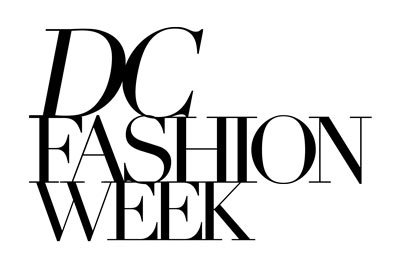Planning a fashion event is no small feat. From glitzy runway shows to intimate trunk presentations, fashion events are a crucial platform for designers, brands, and fashion enthusiasts. Whether you’re a seasoned pro or a first-time planner, this guide will walk you through every detail, ensuring your event is a resounding success. Keep on reading to learn more!
Setting the Stage Understanding Your Audience and Goals
Knowing your audience and defining your goals are crucial steps in planning a fashion event. Your audience could range from fashion buyers and influencers to journalists and consumers. Each group has different expectations, so understanding their needs will help you tailor your event accordingly.
Start by identifying the primary purpose of your event. Are you launching a new collection, celebrating a milestone, or building brand awareness? Clear goals will guide your planning process and help you measure success afterward.
Once you’ve defined your goals, research your target audience. What are their preferences? What kind of experiences do they value? Use this information to craft an event that resonates with them, ensuring a memorable and impactful experience.
Budgeting and Sponsors Making the Numbers Work for You
Budgeting is a critical aspect of planning a fashion event. Start by listing all potential expenses, including venue rental, production costs, staffing, marketing, and more. Having a clear budget will help you allocate resources effectively and avoid unexpected financial surprises.
Seeking sponsors can significantly offset your costs. Identify potential sponsors who align with your brand’s values and audience. Prepare a compelling proposal that highlights the benefits of partnering with your event, such as brand exposure and access to your target audience.
Maintaining a detailed budget throughout the planning process will help you stay on track financially. Regularly review your expenses and adjust as needed to ensure you’re making the most of your resources.
Choosing the Right Venue Location Size and Atmosphere
The venue sets the tone for your fashion event. Consider the location, size, and atmosphere when choosing a venue. It should be easily accessible for your guests and suitable for the type of event you’re hosting.
Assess the capacity of the venue to ensure it can comfortably accommodate your expected number of attendees. An overcrowded space can lead to a negative experience, while an overly spacious venue might feel empty and uninviting. Also, consider researching some event furniture hire services so you can create a unique atmosphere and make the most of your venue space. That way attendees will feel comfortable and engaged.
The atmosphere of the venue is also crucial. Does it align with your brand’s aesthetic? Does it have the necessary amenities for your event, such as backstage areas and dressing rooms? Visiting potential venues in person can give you a better idea of its suitability for your fashion event.
Selecting the Date and Time to Avoiding Clashes and Maximizing Turnout
Choosing the right date and time for your fashion event is crucial for maximizing attendance. Research other events happening around the same time to avoid scheduling conflicts that might affect turnout.
Consider your target audience’s availability when selecting the date and time. Weekends and evenings are generally more convenient for most people, but it’s essential to understand what works best for your specific audience.
Once you’ve selected a date and time, send out save-the-dates well in advance. This will give your guests plenty of time to mark their calendars and plan to attend your event.
Building the Program From Runway Shows to Interactive Displays
A well-structured program keeps your guests engaged and ensures a smooth flow of events. Start by outlining the main segments of your event, such as runway shows, panel discussions, and interactive displays.
Plan the timing and sequence of each segment to maintain a dynamic pace. Allow enough time for transitions between segments to avoid any delays or confusion. Consider incorporating interactive elements, such as photo booths or live demonstrations, to keep your guests entertained.
Rehearsals are essential to ensure everything runs smoothly on the day of the event. Coordinate with your team and participants to practice the program, making adjustments as needed to perfect the flow.
Promoting Your Event Leveraging Social Media and Local Partnerships
Effective promotion is key to attracting attendees to your fashion event. Leverage social media platforms to create buzz and reach a wider audience. Share behind-the-scenes content, sneak peeks, and updates to keep your followers excited and engaged.
Collaborating with local influencers and partners can amplify your event’s reach. Identify individuals and organizations that align with your brand and invite them to be part of your event. Their endorsement can significantly boost your event’s visibility and credibility.
Create a cohesive marketing plan that includes email campaigns, press releases, and online ads. Consistent and strategic promotion will help you build anticipation and ensure a successful turnout.
Managing Logistics Tickets Security and Staffing
Logistics are the backbone of any successful fashion event. Ensure you have a reliable ticketing system in place to manage registrations and track attendance. Digital tickets are convenient and environmentally friendly, making them a popular choice.
Security is paramount to ensure the safety and comfort of your guests. Hire professional security personnel to manage crowd control and handle any emergencies that may arise. Brief your security team on the event schedule and layout to ensure smooth operations.
Staffing is another critical aspect of event management. Recruit a team of dedicated and trained staff members to assist with various tasks, such as guest check-in, ushering, and technical support. Clear communication and coordination among your team will ensure everything runs seamlessly.

Fashion events have the power to inspire and influence the next generation of designers, models, and fashion enthusiasts. By hosting a successful event, you contribute to the growth and evolution of the fashion industry.
Encourage aspiring talents to pursue their dreams by providing them with a platform to showcase their work. Offer mentorship opportunities and collaborate with fashion schools to nurture new talent.
Remember, your fashion event is more than just a showcase; it’s a celebration of creativity, innovation, and passion. Keep pushing boundaries, and you’ll continue to inspire and shape the future of fashion.

